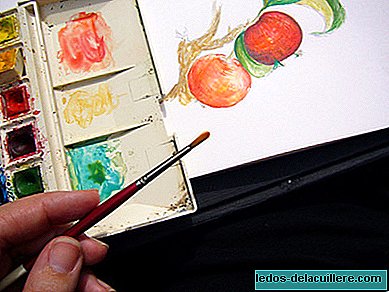
One of the activities children enjoy most is that let's read them out loud. Surely, if you can evoke a time when your parents or grandparents read you a story, you will remember a wonderful feeling. Now is the time to provide it to your children.
Choose the place and time to read a story out loud
Actually, the place does not matter, whether in bed together before bedtime, at a time of rest, or even in the car during a trip or in the park lying in the grass. The important thing is to find the right time and enjoy it.
Look for a time when the child is receptive. Except if they are very upset the proposal to read them a story, especially if it is a story they love, it is always received with enthusiasm. If it were not that way, just wait for the child to want it.
How to read a story well
Let's understand that reading a story is not simply reading words out loud. It is a fantastic experience that you have to live intensely and allow us to get excited too.
When we go to read a story, turn off the television and the computer, do not have food in the fire or any activity that is expected to interrupt us. In fact, I would advise to cut the phone that time, so that nothing does not disturb.
It is convenient to be intensely devoted to the activity, not to think about something else, or to have the child sleep. It is not a prize, nor a punishment, nor a condition, nor a formula for him to access to sleep or eat.
It is a shared pleasure to which we owe for which we must be fully aware of what we are doing, living it with the same intensity that the child will.
This total adult availability is one of the aspects that produce more pleasure in children readings aloud. They know that we are totally focused on them and they feel important and loved knowing that we enjoy their company as much as they do ours.
Apart from this adequate provision little more we will need to read out loud, just one book and our presence.
Conditions to read well aloud
As I said, read out loud A story is not merely read. The more expressiveness and passion we put into reading, the more exciting and wonderful it will be for children.
It is not necessary to read in a hurry, but, rather, at a somewhat slower pace than as we speak. Every word deserves to be rocked in the tongue, savored, squeezed in all its nuances.
Pauses are also an important component of expressiveness of reading aloud and you have to let them flow, stop us, take advantage of them to look the child in the eye and let us both marvel at the story thinking about him.
The beloved stories
Surely there are books that you have revisited many times, stories full of emotion that you love and that, every time you read, you enjoy them and find in them new nuances, phrases that the first reading did not perceive, relationships that are explained only by rereading.
The children they often ask for the same story several times for the same reason. So the first question that we must keep in mind is that, if the child likes history, we will read it many times and we must do it with this idea in mind: each new reading will be a new experience better than the previous one.
Some parents express disgust when the child asks them for a story they have already read before and more if it is one of those who ask us once and again and again, as if they never tired of listening to them. And it is that, they never tire of hearing it just as we enjoy the books we love.
In addition, for the little ones, knowing the argument does not prevent them from enjoying the story, quite the opposite. They feel more confident and competent, they exercise their memory, they are amazed at the amazement they felt and they relive it by multiplying their initial pleasure. The characters are his friends.
If we give in to fatigue and complain when they ask for the same story, we disappoint them, we convey that their emotion is not adequate and surely, if we read reluctantly, we spoil an experience that should have been very beautiful.
This topic is not over, in the following I will continue explaining how to read a story out loud, what aspects to care for and what benefits children get from this shared experience.












